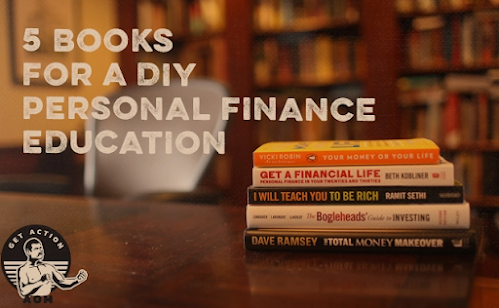Reading books on how to manage finances is one of the tips that you can do
as part of self-development. There are many benefits of reading that can be
obtained. In addition to increasing your knowledge, your knowledge will be
wider and you can apply the knowledge taught in everyday life.
In this case, reading books that teach you how to manage finances will make
you smarter in allocating money, managing expenses so that they are not big
pegs than pillars, and can have healthy finances so that you have a better
future.
5 Books That Teach You How to Manage Your Finances
How to properly manage finances needs to be learned because it is very
important to help achieve healthy financial conditions. Especially at a time
when many people are trapped in a hedonistic lifestyle that does not match
their abilities. Not a few who end up getting into debt with high interest
and unable to pay it.
You should be more vigilant in managing finances. As a reference to being
able to have the ability to manage money in and out, you can learn online
about financial planning.
In addition to learning from various online media, such as taking free
online courses on online learning applications, from YouTube, or
participating in webinars, you can also read various books that discuss how
to manage finances, including:
Best Memoir: Rich Dad Poor Dad
Rich Dad Poor Dad is the title of a very well-known book for studying
finance. This book, written by Robert Kiyosaki, has been a best seller for
more than twenty years and is the first book to discuss personal finance.
In the book Rich Dad Poor Dad, Robert Kiyosaki tells about his father's
habit of mediocre finances compared to the habits of his friend's father who
is very rich. From this fact, it is explained about the financial quadrant
and how to achieve financial freedom.
Best for Debt Management: The Total Money MakeOver
The next recommended book on how to manage finances is a book by Dave Ramsey
entitled The Total Money MakeOver. This book does not teach to get rich
quick, but there are things that are more important than just being rich,
namely a solid foundation for healthy finances.
This book explains household budget issues, such as financial communication
in a marriage and how to pay bills when the kids are going to college.
This book also teaches about the importance of saving and having an
emergency fund to secure the future. So that when undesirable conditions
occur, the family's finances are not disturbed.
Best Overall: Why Didn't They Teach Me This in School?
This book was written by Cary Siegel because he realized that education in
schools is not enough to teach children to manage finances. In fact, how to
manage finances needs to be known since I was a child so that you get used
to it when you are an adult.
Cary Siegel summarizes how to manage finances into eight comprehensive
discussions. There are 3 important points in this book with no more than 200
pages, namely about life lessons, budgeting and saving lessons, and spending
lessons.
Studying finance from this book will allow you to know how to prioritize
needs and prioritize money allocations properly.
Best For Budgeting: Your Money or Your Life
The title of the next book that you deserve to read is Your Money or Your
Life. This book on how to manage finances teaches about how to live
according to financial capabilities, so that there is no financial deficit.
This book offers a different point of view than most people. The author says
that a frugal life can actually make you feel happier. So you can enjoy the
simple things that are sometimes overlooked, including giving tips to change
wasteful habits.
Best for Inspiration: The Millionaire Next Door
The book The Millionaire Next Door was written by Thomas J Stanley and
William D Danko and entered the ranks of bestsellers in 1998. It is about
seven common traits shared by millionaires.
The facts told in this book are the result of years of research by the
author. It turns out that most rich people work hard, live frugally, and
save their income. You can take it as inspiration and follow how the habits
of the rich save and make their money grow.
The benefits of reading books on how to manage finances will be greater if
you simultaneously apply what you learn and directly practice managing your
daily finances. You can also share your knowledge and experiences related to
financial management with your family and friends. So you can help improve
the financial literacy of the people around you.



